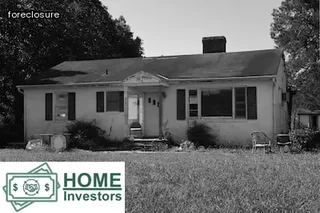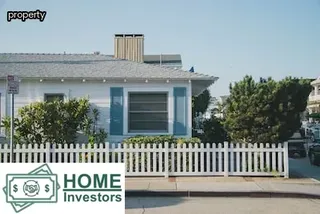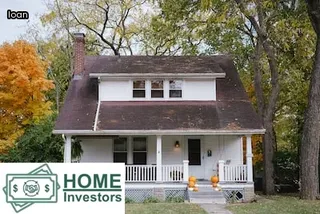Navigating the foreclosure process in Vermont can be a daunting and confusing experience. Preforeclosure is an important part of the process, and understanding the options available to you is key to making informed decisions.
In Vermont, preforeclosure happens when your lender files a complaint against you with the court because you’ve fallen behind on payments. During this time, there are several options available to you that could help prevent foreclosure.
One option is loan modification, which involves changing the terms of your loan to reduce your monthly payments or interest rate. A second option is refinancing, which means taking out a new loan with better terms than your current mortgage.
Another option is forbearance, which temporarily suspends or reduces mortgage payments while you get back on track financially. Lastly, repayment plans allow homeowners to pay back missed payments over a specific period of time as agreed upon by their lender.
Preforeclosure can be intimidating but understanding your rights and options will help make the process easier and less stressful for everyone involved.

Navigating the foreclosure process in Vermont can be a daunting task for homeowners facing foreclosure. There are several steps that must take place in order for a foreclosure to occur, and understanding those steps is essential for homeowners to protect their rights and options.
In Vermont, lenders must serve borrowers with a written notice of default stating they are in breach of their mortgage agreement; this must include an explanation of how the borrower could cure the breach. After receiving this notice, borrowers have 20 days to respond or bring their loan current; if they do not do so, lenders can file a complaint and begin the foreclosure process.
Once filed with the court, lenders must publish public notices of the action and provide borrowers with notice of their right to object. If no objection is received within 14 days, the court will then enter a judgment authorizing a foreclosure sale.
The sale is conducted by auction and typically involves bidders vying to buy the property at its appraised value or less; if no bids are received, the lender becomes owner of the property and can move forward with eviction proceedings. It’s important for homeowners to understand each step of this process as it may provide them with opportunities to protect themselves from foreclosure as well as additional time for loan modification negotiations or other debt relief solutions.
Foreclosure prevention is top of mind for many people in Vermont who are struggling with their mortgage payments. Fortunately, there are numerous strategies that can help you avoid foreclosure.
One of the most proactive steps to take is to contact your lender as soon as you’re aware of an issue, such as an inability to make your payment on time. Doing so may allow you to work out a new payment plan or obtain other assistance from your lender.
Additionally, researching and taking advantage of government programs like the Vermont Foreclosure Prevention Program may help you get back on track financially and keep your home. Another potential strategy is to apply for a loan modification which could lower your monthly payments and reduce the principal balance owed if approved.
Finally, seeking advice from a housing counselor is one way to gain helpful insight into all of the available options and decide on the best course of action for preventing foreclosure in Vermont.

When navigating the foreclosure process in Vermont, it is important to understand your rights and options. One of those options is exploring Vermont deficiency judgment laws.
A deficiency judgment occurs when a lender has sold a foreclosed property for less than what was owed on the loan, and then seeks to collect the difference from the borrower. In Vermont, if a deficiency judgment is sought by a lender, it must be initiated within one year of the foreclosure sale, or else it cannot be pursued.
In addition, lenders may not pursue personal assets or wages to cover any remaining debt. Furthermore, borrowers can seek to avoid deficiency judgments through bankruptcy proceedings or negotiating with their lender through mediation or settlement agreements.
Ultimately, while exploring Vermont deficiency judgment laws can be an important part of understanding your rights and options when facing foreclosure in the state, there are other options available that should also be explored in order to make an informed decision about how best to proceed.
If you are facing the foreclosure process in Vermont, it can be overwhelming to try and navigate it on your own. It is important to know what rights and options you have available to you.
Seeking professional assistance is a great way to ensure that you understand all of your options and get the best advice possible. A knowledgeable attorney who specializes in foreclosure law can help explain the process, provide guidance on how to negotiate with your lender or servicer, and advise on whether or not filing for bankruptcy could be a viable solution.
Additionally, they will be familiar with the court proceedings involved in the foreclosure process and can represent you through each step until it is resolved. An experienced attorney will also be able to determine if other legal issues are present, like predatory lending practices or violations of consumer protection laws.
Taking the time to research and find an experienced lawyer who focuses on foreclosures in Vermont should be a priority when navigating this difficult situation.

Missing mortgage payments can result in serious consequences for homeowners in Vermont. Foreclosure is a legal process that lenders may attempt if payments are not made on time.
The lender has the right to repossess the property and sell it to cover the amounts owed if foreclosure moves forward. Additionally, missed or late payments can lead to increased interest rates and other fees that add up quickly.
Homeowners should be aware that their credit score can suffer greatly from missing mortgage payments, which will make it difficult to obtain financing for other purchases down the road. Furthermore, legal action such as a lawsuit may be taken against homeowners who do not keep up with their mortgage payments.
Understanding one's rights and options when facing foreclosure is essential so they can make informed decisions while navigating the process in Vermont.
A Breach Letter is the first step in a foreclosure process in Vermont. It is sent by the lender to the borrower when their mortgage payments have become delinquent.
The letter informs the borrower of their failure to keep up with payments and provides details on how they can make up the missed payments or enter into a repayment plan. In some cases, it will also include an ultimatum that if payment is not made then foreclosure proceedings may begin.
The Breach Letter provides important information about what rights and options are available to the borrower and should be read carefully before making any decisions. It is important for borrowers to understand how their state's regulations affect them and what legal options may be available for protecting their rights during this difficult process.

When a homeowner falls behind on mortgage payments, it is important to understand the start of the foreclosure process. In Vermont, a foreclosure begins when the lender records a Notice of Default with the town clerk in the county where the property is located.
This document notifies the homeowner that they are in default and provides them with a certain amount of time to bring their loan up to date or sell their property. It also serves as public notice that foreclosure proceedings have begun.
If an owner fails to catch up on mortgage payments during this time period, they may lose ownership of their home and have it sold at auction by the lender. Homeowners should know that they still have rights and options in this situation, such as requesting a loan modification, participating in mediation services, or filing for bankruptcy.
Vermont state foreclosure laws have several key provisions that homeowners should be aware of. Foreclosure proceedings are carried out in the Superior Court, where the lender must file a complaint and the borrower is served with a copy of the complaint.
The borrower then has 21 days to respond to the complaint. If they do not, the court can enter a default judgment in favor of the lender and order that the property be sold at an auction.
The sale must be advertised in a newspaper for at least 14 days prior to the auction date. The homeowner also has certain rights under Vermont law, such as being able to redeem their property within two years of foreclosure if they pay off all past due amounts plus interest and costs associated with foreclosure proceedings.
Additionally, lenders must provide written notice to borrowers before beginning any legal action regarding their mortgage loan and may not proceed with foreclosure until all required notices have been sent. Lastly, borrowers have a right to request mediation with their lender prior to or during the foreclosure process in order to explore potential solutions for avoiding foreclosure.

If a homeowner in Vermont is facing foreclosure, they may be able to avoid the process by reinstating their mortgage. To do so, they must pay off the entire amount of arrears and any other fees associated with the loan.
This can be done by obtaining a loan from another lender, restructuring the existing loan, or paying cash. Homeowners should also consider speaking with their lender about options such as forbearance, deferment, or modification.
Before making any decisions about reinstating a mortgage in Vermont, homeowners should consult an expert who is knowledgeable about foreclosure laws in the state and discuss all available options. It is also important to note that homeowners may have more success if they are able to demonstrate a financial hardship to their lender.
Understanding how to navigate the foreclosure process and rights that come along with it can help homeowners make informed decisions and get back on track financially.
When it comes to the foreclosure process in Vermont, it’s important to understand your rights and options. One of the most significant elements is the redemption period under Vermont law.
A redemption period begins when a foreclosure sale is completed and allows the former homeowner to reclaim their property by paying off any delinquent mortgage payments, interest, taxes, and other expenses associated with the foreclosure process. The amount due must be paid within a certain timeframe that varies depending on the circumstances; for example, if a foreclosure was obtained through a court judgment, then the homeowner typically has 12 months to redeem their home before it is sold to another party.
It is important to note that during this period, the homeowner is still responsible for maintaining the property and paying any taxes or other fees associated with it until they either pay off all of their debt or are evicted from the property. Additionally, there may be other provisions in place that protect homeowners from being forced out of their homes during this time.
Knowing these guidelines can help individuals make informed decisions about how best to navigate the foreclosure process in Vermont.

In Vermont, after a foreclosure process has been completed, the homeowner may be evicted from their property. During this process, it is important to understand your rights and options as a former homeowner.
The first step of the eviction process involves receiving a notice of eviction from the lender or new owner of the property. This notice must include a written statement that outlines how much time you have to vacate the home before legal action is taken against you.
In addition, if you are unable to move out in the allotted timeframe, you should contact an attorney immediately for assistance. Once an eviction proceeding has begun, it is vital to take all steps necessary to comply with court orders.
This includes attending all necessary hearings and responding to any requests for information from the court or new owner of the property within the specified timeframe. Lastly, if an individual does not comply with court orders they could face fines or even jail time depending on their specific situation.
It is essential for individuals facing eviction in Vermont after foreclosure to understand their rights and options throughout each step of the process in order to protect themselves.
Navigating the foreclosure process in Vermont can be complex and overwhelming. It is important to understand your rights and options when facing foreclosure, and one of the best ways to do that is by obtaining legal advice from a Vermont foreclosure lawyer.
An experienced lawyer will be able to provide you with advice on how to handle various parts of the foreclosure process, such as negotiating with lenders or filing for bankruptcy protection. They will also be able to help you understand any state laws that may apply to your situation, such as those governing the sale of foreclosed properties.
Additionally, a lawyer can provide guidance on whether it may be possible to avoid foreclosure altogether by restructuring loans or developing an alternate repayment plan with creditors. In every case, it is beneficial to consult a qualified attorney who has experience in Vermont's specific laws and regulations related to foreclosure for an accurate assessment of your rights and options.

The length of time for a foreclosure action in Vermont is difficult to estimate due to the complexity of the process and potential delays along the way. Generally, a lender must take certain steps before they are legally allowed to foreclose on a property.
First, the lender must provide the borrower with a Notice of Intent to Foreclose, which includes information about their rights and options under Vermont law. The borrower then has 30 days from receiving the notice to respond or make any payments necessary to reinstate their loan.
If the borrower does not respond within this timeframe, then the lender can start the legal proceedings required for foreclosure. This includes filing a complaint with court and providing notice to all interested parties.
Once this is done, there may be additional delays depending on how long it takes for court hearings and appeals to be scheduled. Ultimately, it is possible that a foreclosure action can take up to six months or longer in some cases.
Vermont homeowners facing foreclosure have alternatives to traditional foreclosure proceedings. An increasingly popular option is a deed in lieu of foreclosure, which allows the homeowner to voluntarily transfer the title of their property to the lender in return for debt forgiveness.
In addition, a loan modification may be available if the homeowner can demonstrate financial hardship and an ability to make payments under more favorable terms. Short sales are another option that involves selling the home for less than what is owed on it and using the proceeds to pay off the mortgage; however, this option should only be considered with professional advice.
Finally, some lenders may be willing to accept a repayment plan or accept cash for keys, where they agree to release a lien on the property in exchange for payment of some or all of what is owed.

Navigating the foreclosure process in Vermont can be daunting, and understanding your rights and options is key. Loss mitigation strategies are an important part of the foreclosure process, so it’s important to know the pros and cons of different types of strategies.
Loan modifications can be beneficial for homeowners since they often result in lower monthly payments, but there is no guarantee that a loan modification will be approved. Forbearance agreements can provide temporary relief from making mortgage payments if you’re experiencing financial difficulty, however interest may still accrue during this time.
Short sales are another option, though it’s possible that some of the debt may not be completely forgiven. It's also important to note that deed-in-lieu transactions typically require that all loans on the property must be paid off before completion.
Disputing a wrongful or unlawful foreclosure in Vermont can be a difficult process. It is important to understand the legal rights and options available when it comes to navigating the foreclosure process.
It is essential to seek out local legal advice from an attorney who is familiar with foreclosure laws in the state of Vermont. Additionally, homeowners should be aware of their rights such as redeeming their property within a certain period of time after the foreclosure sale has occurred, or filing an appeal if certain procedures have not been followed according to law.
Homeowners should also keep in mind that they may have other options such as negotiating with their lender or asking for a loan modification in order to stay in their homes. Knowing all of these potential routes is critical for protecting one's rights throughout the entire process.

The federal government offers several programs to assist homeowners facing foreclosure in Vermont. The Home Affordable Modification Program (HAMP) is designed to help homeowners reduce their monthly mortgage payments and avoid foreclosure.
Through HAMP, lenders agree to modify existing loans so that the homeowner's monthly payment is reduced and more affordable. Another program, the Home Affordable Refinance Program (HARP), helps those with existing mortgages refinance into a new loan at a lower interest rate.
This can significantly reduce the amount of interest paid on the loan over time resulting in significant savings for the homeowner. Additionally, veterans may be eligible for special assistance through the Veterans Affairs Home Loan Guarantee Program which helps secure a loan with favorable terms and low down payments or no down payment at all.
Finally, borrowers may also be able to take advantage of HUD counseling services which provide free or low-cost advice on budgeting and mortgage management as well as information about other state and federal resources available to assist homeowners in avoiding foreclosure.
Navigating the foreclosure process in Vermont can be daunting, but understanding your rights and options is key to protecting yourself as a homeowner. Knowing what steps you need to take and how to protect your interests will help you navigate this difficult process.
It is important to understand that you are still responsible for paying your mortgage during the foreclosure process, so contact your lender immediately if you are having trouble making payments. You may also be able to work out an arrangement with them, such as a loan modification or forbearance plan.
Additionally, it’s worth exploring other alternatives such as refinancing or selling the property through a short sale if possible. As a homeowner facing foreclosure, Vermont law guarantees certain protection including specific timelines for each stage of the process and the right to dispute any misleading information on your credit report.
It is essential that homeowners familiarize themselves with their rights and options during foreclosure proceedings in order to make informed decisions about their situation.

When navigating the foreclosure process in Vermont, it is important to understand the financial implications that may result post-foreclosure. Homeowners should assess their current economic situation and evaluate their total debt, including mortgage payments, taxes and other bills.
Furthermore, they should be aware of any potential late fees associated with past payments. It is also essential to review credit report information and identify any negative marks that may have been placed on the homeowner's record due to nonpayment or delinquency.
In addition, homeowners should consider what type of loan they have, as some loans that are backed by the government may provide additional protections beyond those available through a traditional mortgage. Finally, it is important for homeowners to understand their rights when faced with foreclosure and how each option could affect their overall financial standing in the long run.
In Vermont, the foreclosure process is governed by state statutes and court orders. The state has enacted specific laws to protect borrowers from predatory lenders and to ensure a fair process for all parties involved.
At the same time, these laws provide lenders with legal protection should they choose to pursue foreclosure on a borrower’s home. To understand the foreclosure laws in Vermont, it is important to know that the foreclosure process must begin with a written notice of default sent by the lender to the homeowner.
This notice must include information about the loan, delinquency amount, and any applicable fees. If payment is not received within 30 days of receipt of this notice, then the lender may file a complaint in court seeking an order of foreclosure.
From there, the court will appoint a referee who will review all pertinent documents related to the loan and set forth a timeline for all proceedings. Once ordered, Vermont law requires that lenders hold an auction of foreclosed property within 45 days from when it was granted.
The auction winner takes ownership of the property at that time, although borrowers do have certain rights under Vermont law that can help them retain their homes in some circumstances. It is important for anyone facing foreclosure in Vermont to familiarize themselves with their rights and options under state law so they can make informed decisions regarding their financial future.

In Vermont, homeowners typically have to be at least three months behind on their mortgage payments before their lender can initiate the foreclosure process. This means that if a homeowner is having difficulty making payments due to financial hardship, it may be possible to catch up and avoid foreclosure.
However, if the homeowner has fallen more than three months behind on their payment, they should take action immediately. The sooner they understand their rights and options regarding foreclosure in Vermont, the better chance they will have of navigating the process successfully.
It is also important for homeowners to remember that there are certain protections under state law that can help them as they try to negotiate with their lender and attempt to keep their home. Understanding these laws and utilizing them correctly can provide a lifeline for those struggling with delinquent payments in Vermont.
Vermont has the longest foreclosure process in the country, taking an average of three years for a lender to repossess a property. It is important for homeowners facing foreclosure in Vermont to understand their rights and options during this lengthy process.
Foreclosure is the legal process by which a lender can take possession of a property when payments are not made on time or cannot be met. Knowing your rights and options is essential to navigating this complicated process.
In Vermont, a lender must first file a complaint in court before initiating foreclosure proceedings, which means that homeowners have an opportunity to work out alternative arrangements with their mortgage company prior to the actual foreclosure sale. Additionally, homeowners may be eligible for various programs that can help them stay in their homes or provide assistance with relocation if needed.
Understanding these rights and options is key to successfully navigating the foreclosure process in Vermont.
Vermont is a judicial foreclosure state, meaning that the court system oversees the entire process. This means that if you are facing foreclosure in Vermont, you will need to go through the court system as part of your foreclosure process.
The court will review your case and decide whether to grant a foreclosure judgment. If a judgment is granted, the lender can then proceed with the sale of your property or other collection efforts.
Understanding how the judicial system works in Vermont can help you understand your rights and options when it comes to navigating the foreclosure process. It's important to keep in mind that each state has its own laws regarding foreclosures and it's important to know what those laws are before proceeding.
A: The foreclosure process in Vermont can take anywhere from three to six months, depending on the circumstances. It begins with the mortgagee notifying the mortgagor of their intention to foreclose and can culminate in the mortgaged property being sold at auction if all parties do not come to an agreement before then.
A: The timeline for a foreclosure process in Vermont is typically between 60 to 90 days, depending on the complexity of the case.

A: The length of time for a lienholder to complete the foreclosure process in Vermont varies based on the circumstances surrounding the loan. Generally, however, the process can take anywhere from 3-6 months.
A: The foreclosure process typically takes between 90-120 days in Vermont. Once the Affidavit is filed, it can take 30-45 days for the court to enter a Decree.
A: The timeframe for sending a foreclosure notice by first class mail in Vermont typically takes around 8-10 days, including the time needed for postage.

A: A strict foreclosure process in Vermont can take anywhere from 3 to 12 months from the filing of the summons.
A: The typical foreclosure process in Vermont can take anywhere from 6-9 months, depending on the complexity of the case and other factors. The right of redemption period is typically set for 12 months, during which time the homeowner can still save their home by repaying any delinquent debt. Once this period expires, a legal description of the real property is required to be included in order to finalize the foreclosure process.
A: The timeframe of a foreclosure process can vary greatly depending on the complexity of the case and the number of involved parties. Generally speaking, it can take anywhere from 60-90 days for a DEED OF TRUST to be executed in Vermont when money is owed.

A: The exact timeline of a foreclosure process varies depending on the case; however, in Vermont it typically takes between 6-9 months if the borrower chooses to file for Chapter 13 Bankruptcy.
A: The length of time required to complete the foreclosure process can vary depending on the circumstances, but typically a foreclosure in Vermont can take anywhere from 3-6 months once the paperwork has been filed and an appraisal has been conducted.
A: In Vermont, shall issue requests are typically responded to within 30 days. The entire foreclosure process can take up to several months depending on the complexity of the case and the amount of Mortgage Servicing required.

A: The amount of time required to receive assistance from a mortgage assistance program varies based on the specific program and the borrower's individual circumstances. Generally, the process can take anywhere from a few weeks to several months, depending on the availability of resources and other factors.
A: It depends on the situation, but homeowners in Vermont should expect to spend at least several weeks gathering information and exploring options. It is important to research local legal resources and become familiar with the foreclosure process, as well as any potential assistance programs that may be available.